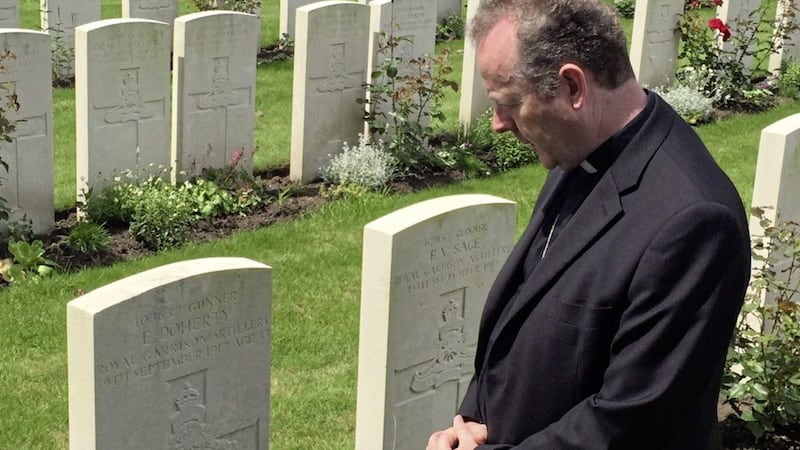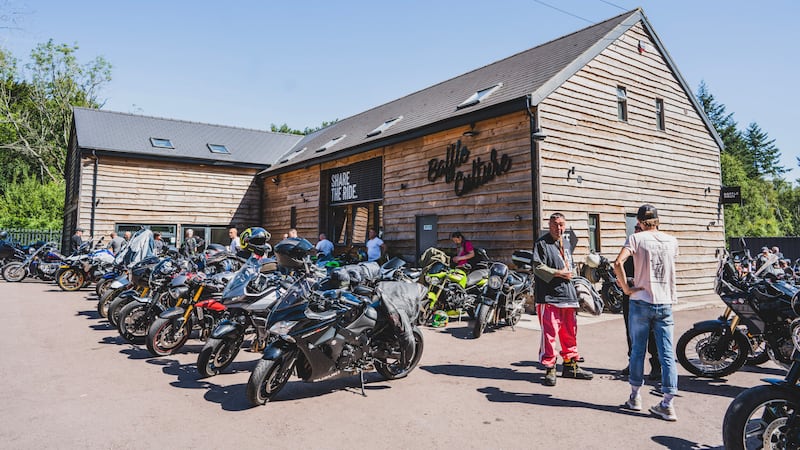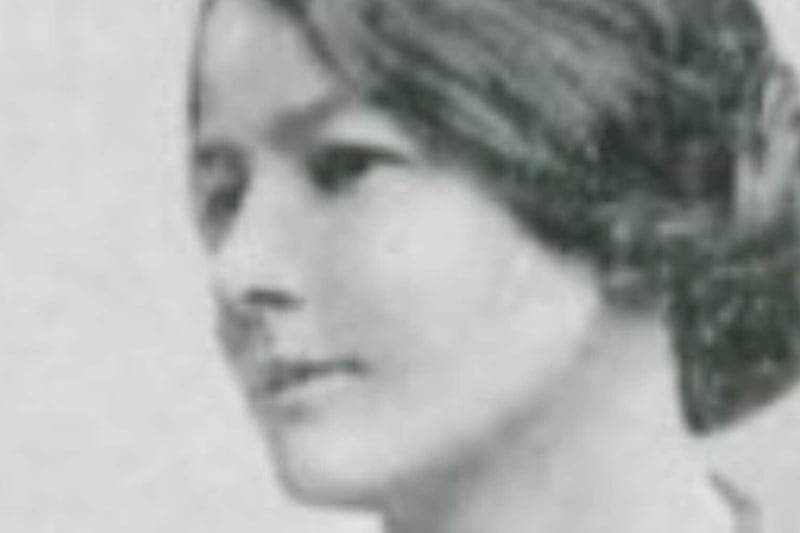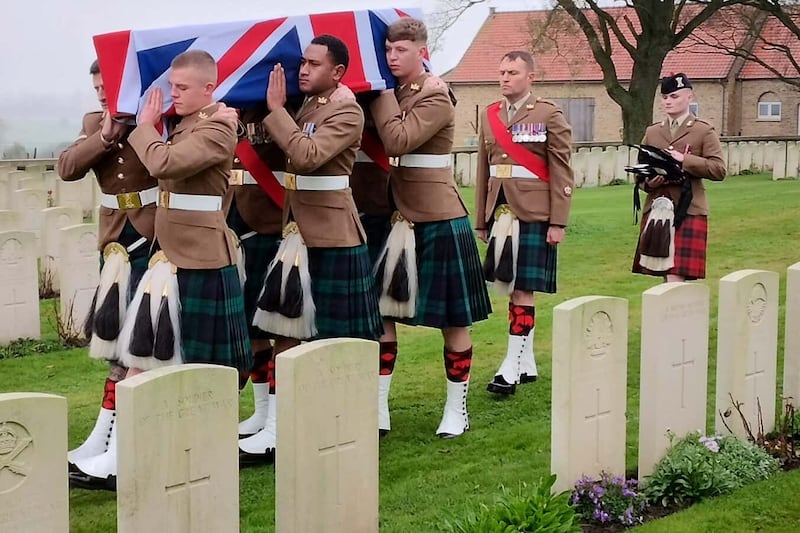ONE hundred years ago, on September 19 1917, my granduncle Edward Doherty was killed while fighting on the Western front.
I found his grave last year while on a visit to the battlefields of World War One with Archbishop Richard Clarke and a group of young Catholics and Protestants from north and south.
He is buried in Canada Farm Cemetery about five miles outside Ypres in Belgium. I knelt down and prayed at the white Portland headstone which reads: Gunner E Doherty, Royal Garrison Artillery, 19th September 1917, age 33.
Uncle Eddie had left Meedenmore, Co Donegal, a few years earlier to find work in England and he 'signed up' like thousands of other young men of his age.
He was tall and strong - used to hard work on the farm or in the Middlesbrough docks - and now he found himself learning to operate the heavy guns of war.
His sister Catherine, my grandmother, often spoke of him. Amongst the family treasures she kept a postcard he had sent from Southwark, England, not long before he disembarked for mainland Europe.
More poignant still is the letter from a Reverend E Devas, the chaplain who wrote to my great granny to confirm that her son Edward had died in action, but reassuring her that he had received a Catholic burial "in a blessed grave with a proper cross"; "Happy those who mourn; they shall be comforted," as we read in the Beautitudes in Matthew 5.
There he lies, in Flanders fields, another young man among the half a million who perished within three months in the infamous battle of Passchendaele.
Edward's brother Patrick also joined up. He fought in the Dardanelles and in the Middle East, but thankfully he returned home from war to his family and went on to live a long life working on the trams in Glasgow.
He is buried in the old graveyard at Iskaheen near my great grandparents, Alice and Edward.
When he died his colleagues, in the Corporation of Glasgow, in appreciation, sent a plaque for his grave in the shape of an open book.
I tell their stories conscious that many of you have similar stories handed down in your own families of men from all over Inishowen who died or were injured in the so-called 'Great War'.
When I visited Flanders I promised that I would come here to Inishowen and offer Mass for their souls.
Sadly, because of the cruel and crazy tensions of our own history of conflict, the many thousands of Irish Catholics who died in the First World War have perhaps not been adequately remembered.
For decades the fact that Irish Catholics and Protestants fought and died, side by side, was somewhat neglected - perhaps conveniently - by all sides.
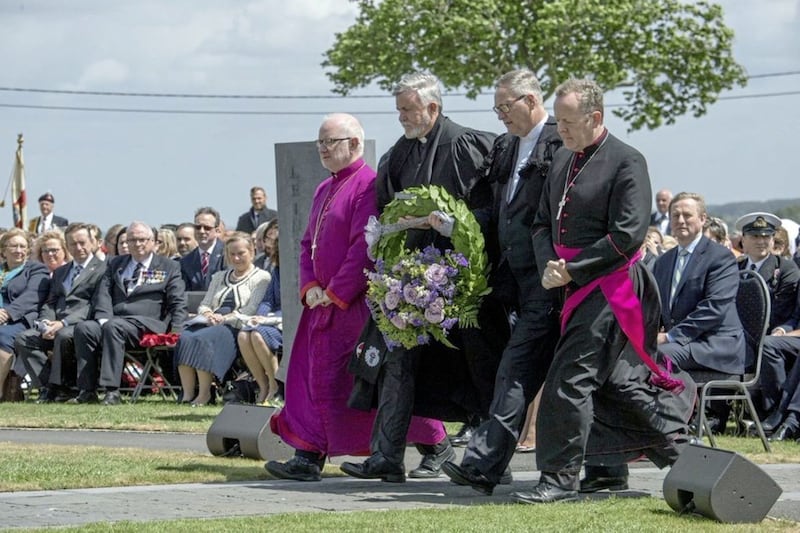
People preferred to cling on to a history of difference and separation, rather than recognise and embrace our shared story of common suffering.
A few months ago, as the grandnephew of Edward Doherty from Meedenmore, I felt honoured to stand at Messines Peace Park in Belgium alongside other Church leaders to pray for peace and for an end to war and conflict everywhere.
Three granite blocks remind visitors to Messines of those from the island of Ireland who were killed, wounded or missing 100 years ago: 32,000 from the 36th Ulster Division; 28,000 from the 16th Irish Division; 9,000 from the 10th Irish Division.
In my thoughts that day was another Donegal man, Paddy Harte, who worked tirelessly back in the 1990s with Glen Barr from the Waterside in Derry to bring to light the stories of thousands of Catholics and Protestants from towns and villages all over Ireland who died in the First World War.
Their efforts came to fruition with those amazing scenes back in 1998 when Queen Elizabeth II, President Mary McAleese and Prince Albert of Belgium opened the Island of Ireland Peace Park and Tower at Messines.
In June, I stood there for a photograph with the other Church leaders beside the bronze tablet on which is inscribed the following Peace Pledge: "From the crest of this ridge, which was the scene of terrific carnage in the First World War... as Protestants and Catholics, we apologise for the terrible deeds we have done to each other and ask forgiveness... we appeal to all people in Ireland to help build a peaceful and tolerant society... we affirm that a fitting tribute to the principles for which men and women from the Island of Ireland died in both World Wars would be permanent peace."
Standing at war memorials, wearing poppies and laying wreaths may not have been part of my tradition or growing up, but remembering, honouring and praying for the dead is important to the practice of my faith.
In recent years I have grown to respect and understand more fully that, whilst we may remember in different ways, what unites us is so much greater and stronger than anything that is talked up to divide us.
Our families have shared the awful pain that war brings - the grief, loss and heartache that is part of losing someone you love and hold dear. But our souls also share a longing for God's peace.
It is this hope, rooted in Christ the Prince of Peace, that Saint Paul was thinking of when he wrote to the Colossians: "You ought to be clothed in sincere compassion, in kindness and humility, gentleness and patience; bear with one another; forgive each other as soon as a quarrel begins; put on love, so that the peace of Christ may reign in our hearts."
In celebrating this Mass, and by our unveiling of a simple plaque at Iskaheen in honour of all those from Inishowen who died in the First World War, I am hoping that together this evening we are taking a small step in building greater understanding and reconciliation, whilst acknowledging the sacrifice and bravery of our ancestors who so selflessly gave up their lives.
"At the going down of the sun and in the morning, We will remember them." Amen.
:: From the homily of Archbishop of Armagh Dr Eamon Martin at Mass for the happy repose of the soul of his uncle Edward Doherty and in remembrance of all those from Inishowen who were killed or injured in the Great War. Following Mass in the Church of the Sacred Heart in Muff, Co Donegal last Friday, a plaque was unveiled at St Patrick's Church in Iskaheen.
